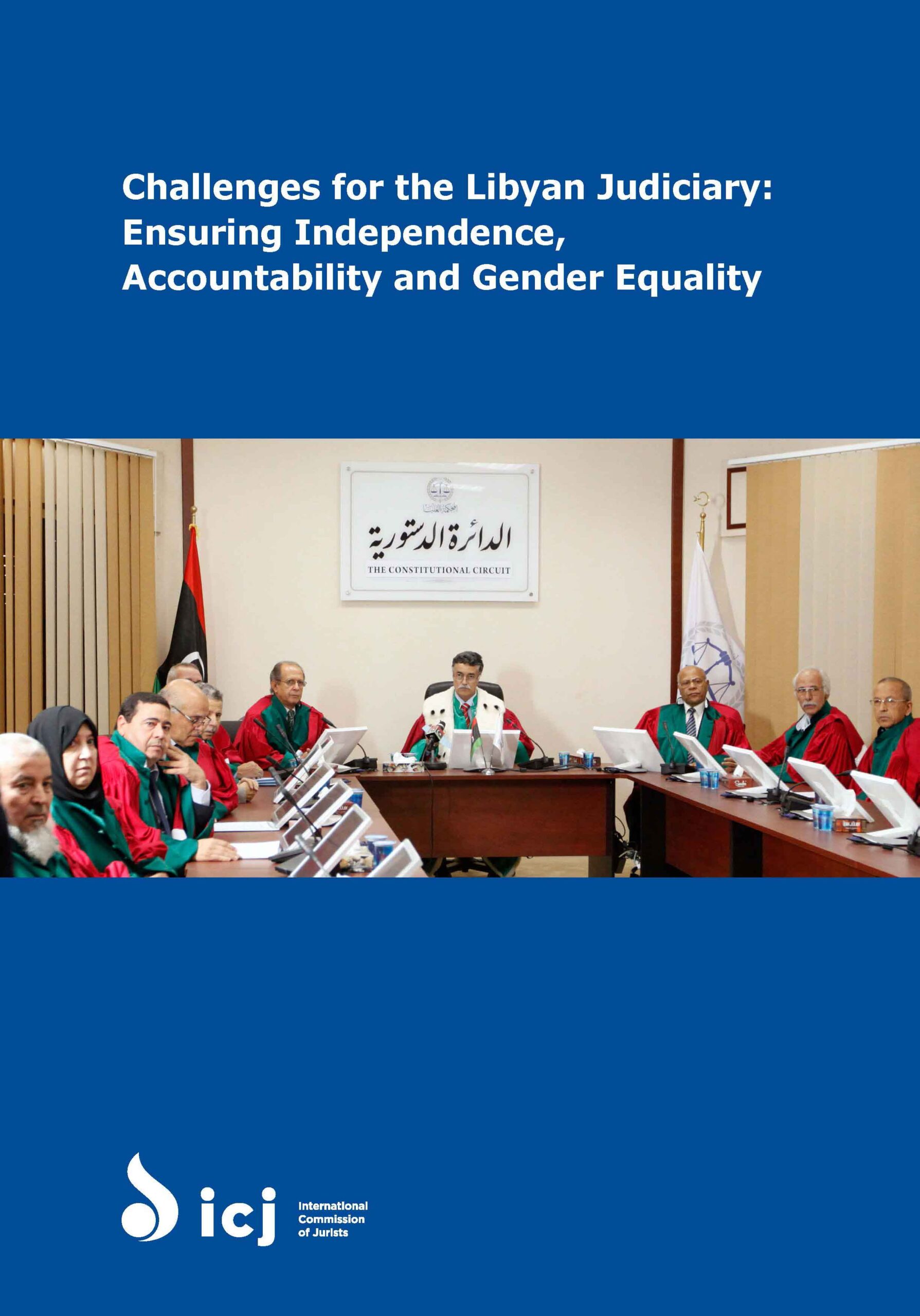Libya must reform its legal framework and make revisions to the current draft Constitution in order to consolidate the rule of law and judicial independence and to address ongoing impunity in the transitional process, the ICJ said today.
The statement came as the ICJ released its new report Challenges for the Libyan Judiciary: ensuring independence, accountability and gender equality.
In the report, the ICJ calls on the Libyan authorities to revise the legislation governing the organization of the judiciary, the Supreme Judicial Council, (SJC), the prosecutor’s office and the use of military tribunals in line with international law and standards on the independence and accountability of the judiciary and on gender equality.
The ICJ also calls on the Constitution Drafting Assembly to revise the latest draft of the Constitution to ensure that it fully accords with international law and standards.
In May, the ICJ held a high level conference, in part to discuss the report’s findings bringing together senior judges, former ministers, members of the Constitution Drafting Assembly, lawyers, prosecutors and legal academics from across Libya.
Participants recognized the need for reforms and expressed their commitment to strengthening the independence of the judiciary and consolidating the rule of law in Libya.
“If Libya is to move forward towards a new era where the rule of law is held paramount, the new Constitution and legislation on the administration of justice must conform to the principles of judicial independence, impartiality and accountability,” said Said Benarbia, Director of the MENA programme at the ICJ.
The report emphasizes the need for the Supreme Judicial Council to be institutionally, financially, and administratively independent from the executive.
It is also important that its membership be pluralistic and gender-representative, with a majority of judges elected by their peers, the report says.
The existing Statute on the Judiciary needs revision to provide fair and transparent procedures for the selection, appointment, promotion and discipline of all judges, according to the report.
It also needs to provide for specific measures aimed at increased representation of women in the judiciary, including in senior positions.
The ICJ report also calls on the Libyan authorities to ensure the functional independence of the prosecutor’s office from both the executive and the rest of the judiciary.
Such independence is important to ensure that any past and ongoing gross human rights violations in Libya are impartially and thoroughly investigated and prosecuted and that all those responsible for such violations are criminally held to account, the ICJ says.
The report underlines that the jurisdiction of military tribunals must be restricted only to cases involving members of the military for alleged breaches of military discipline.
Alleged violations of human rights committed by the military or armed forces must be investigated and prosecuted by civilian authorities, it says.
The report recommends that immediate measures be taken to end arbitrary detention across Libya and ensure to all detainees the right to a fair trial.
Contact
Doireann Ansbro, Associate Legal Adviser of the ICJ Middle East and North Africa Programme, email: doireann.ansbro(a)icj.org
Libya-IoJ report launch-News-Pres releases-ARA-2016 (full press release in Arabic, PDF)
Libya-Challenges the Judiciary-Publications-Reports-Thematic report-2016-ENG (full report in English, PDF)
Libya-Challenges the Judiciary-Publications-Reports-Thematic report-2016-ARA (full report in Arabic, PDF)

